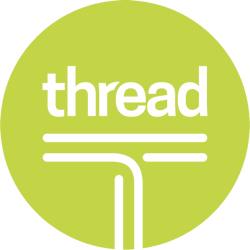7 Takeaways from SHRM 2019 for Small and Midsized Businesses
Nearly 20,000 HR professionals attended this year’s annual SHRM conference in Las Vegas, Nevada. If that sounds like a packed convention center, it was!
The theme of the conference was “Creating Better Workplaces”. The sessions themselves covered a range of topics across the HR landscape. A lot of important work is being done to improve HR departments and workplaces around the world. People are eager to share their ideas and learn from those around them.
Here are seven big themes we noticed:
- Employers are facing exponential changes in technology, and many of them are underusing the technology they have. Technology can free up a lot of HR’s time for other meaningful activities and enable employers to stand above the crowd, but only if it’s used effectively. Organizations that don’t adapt to technological changes risk wasting valuable resources and spending significantly more money on tasks that their competitors do on the cheap.
- Distrust and drama are a death sentence to collaboration and communication and will cause innovation and creativity to dry up. Fortunately for businesses of all sizes, you don’t need a huge budget or costly program to counter distrust and drama in the workplace. In their respective sessions, Cy Wakeman and Sarah Noll Wilson each showed attendees how self-reflection, shared accountability and setting others up for success alleviate the stressors that bring us down, cause us to distrust one another, and clog up our day with unnecessary drama. People are the hardest part of work, Brené Brown noted in her keynote, but people are all we have.
- Employees, especially younger ones, expect more from their employers. They want to work for mission-driven people who understand their needs and the needs of society. In fact, they expect business leaders to help right the wrongs in society and take a public stand against problems like pay inequality, extreme poverty, and unconscious bias. For these employees, compliance isn’t enough.
- Expectations are also changing for managers, who are more and more expected to be attentive. The best managers today understand human psychology. They’re able to read emotional cues and spot signs of stress. And they have the people skills to help employees navigate strong emotions and uncertain situations.
- Multiple speakers recommended that HR and Marketing departments should work together to improve their company’s employer brand—the image that prospective employees have of the company. Every employer has a brand. It’s the internal culture of the organization as seen from outside the organization. Job postings, social media activity, and online employee reviews each shape the employer brand, and that brand plays a big role in every organization’s recruitment efforts.
- Sexual harassment prevention efforts took on greater urgency following the #MeToo movement, and now companies are looking to improve and expand their harassment prevention efforts to combat other forms of unwelcome conduct that’s based on a protected class.
- There’s an exciting, collaborative spirit in the HR world. You could feel it in the sessions, witness it in the hallway conversations, see it on full display in the expo hall, and follow it in all the social media discussions. Recruiters, specialists, generalists, directors, and other HR professionals want to connect, learn, and grow together.















